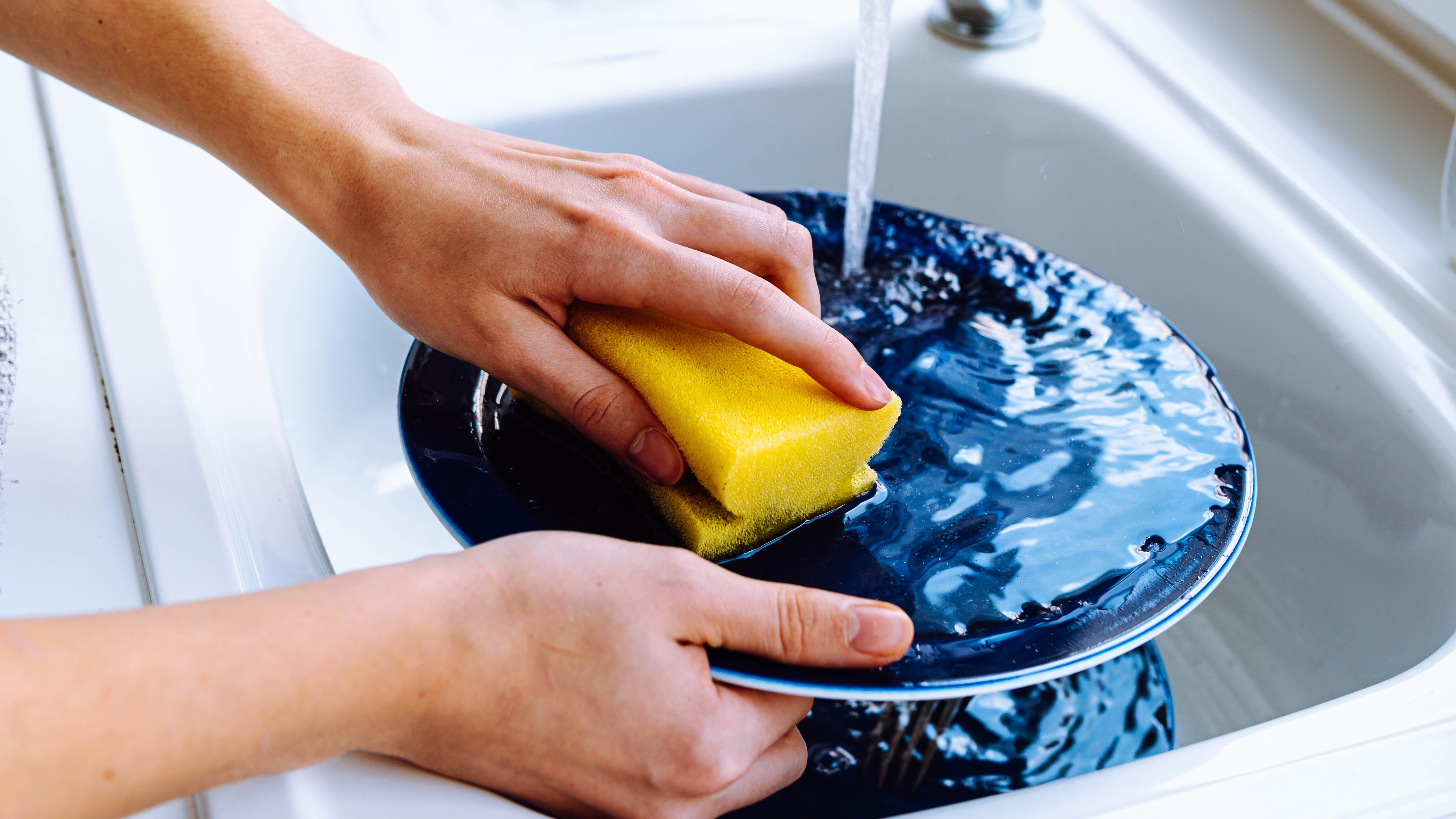What is a platform bed and do I need one?
A platform bed is a popular type of bed frame. Here's everything you need to know to decide if it's right for you
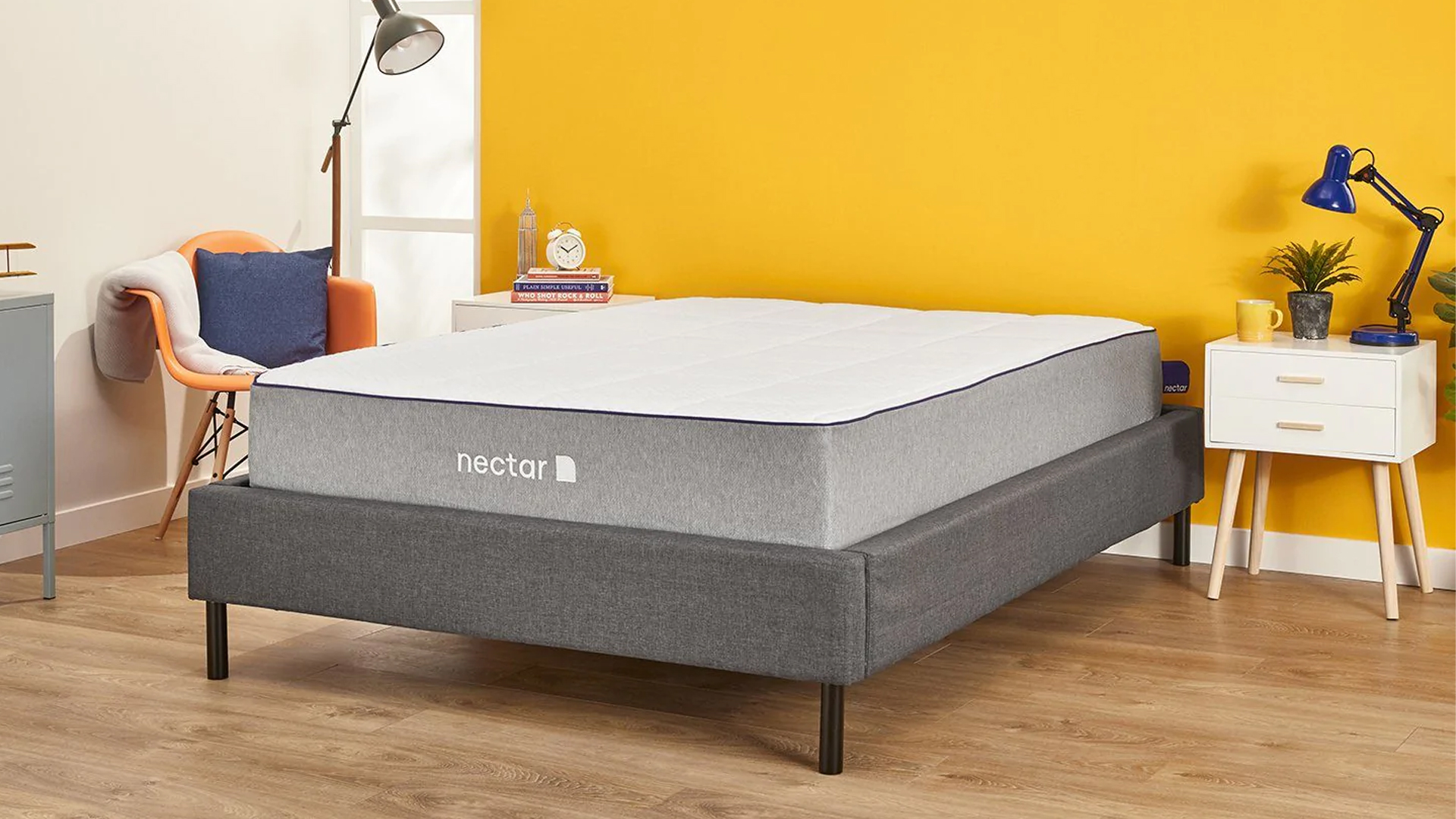
Here at Tom’s Guide our expert editors are committed to bringing you the best news, reviews and guides to help you stay informed and ahead of the curve!
You are now subscribed
Your newsletter sign-up was successful
Want to add more newsletters?

Daily (Mon-Sun)
Tom's Guide Daily
Sign up to get the latest updates on all of your favorite content! From cutting-edge tech news and the hottest streaming buzz to unbeatable deals on the best products and in-depth reviews, we’ve got you covered.

Weekly on Thursday
Tom's AI Guide
Be AI savvy with your weekly newsletter summing up all the biggest AI news you need to know. Plus, analysis from our AI editor and tips on how to use the latest AI tools!

Weekly on Friday
Tom's iGuide
Unlock the vast world of Apple news straight to your inbox. With coverage on everything from exciting product launches to essential software updates, this is your go-to source for the latest updates on all the best Apple content.

Weekly on Monday
Tom's Streaming Guide
Our weekly newsletter is expertly crafted to immerse you in the world of streaming. Stay updated on the latest releases and our top recommendations across your favorite streaming platforms.
Join the club
Get full access to premium articles, exclusive features and a growing list of member rewards.
If you're looking into upgrading your sleep setup, you might have come across the term 'platform bed', and wondered exactly what it meant. In this article we'll go through everything you need to know about this is a popular type of bed base, and help you figure out if it's the right choice for you.
It's easy to overlook your bed frame when shopping for a new mattress, but the two need to complement each other to achieve the most comfort. For a lot of people, platform beds do just that through a built-in foundation that's stable and well-ventilated. They're also quite affordable and available in a range of designs. Some even have built-in drawers and shelves for storage.
Of course, the popular option isn't always going to be the right fit for everyone. A platform bed may be the best bed frame for modern mattresses since it offers excellent support. However, the natural firmness of a platform bed could make some of the best mattresses uncomfortable to sleep on. And while the low profile of a platform bed may look sleek, it's not practical for anyone with mobility issues.
Below, we'll be diving into the pros and cons of platform beds and answering the most frequently asked questions so you can determine if it's right for you. Note that if you sleep on a traditional innerspring mattress, you may want to go for a box spring instead, although a platform bed isn't totally out of the question for you, either, if you want a more modern look for your bedroom. Read on to find out more.
What is a platform bed?
A platform bed can be made of wood, metal, and/or upholstery, but crucially it features a stable surface in the middle – either wooden slats or a solid platform. In contrast, a standard bed frame does not have support built in, and would require someone to purchase a separate foundation – usually a box spring, but it could also be a flat surface like a bunkie board. Designs for platform beds range from minimalist chic to ornate, with design elements like headboards and footboards. Most platform beds are between 7 and 12 inches high. For more information on supporting your bed, check out our guide to what goes under a mattress.
Platform beds are generally more affordable, versatile, and durable than their traditional box spring counterparts. They can also be functional – a lot of platform beds include built-in storage drawers to help reduce clutter and make your room look bigger. Individuals with mobility issues could find getting in or out of such a low-profile bed problematic, however. (Head to our box springs vs platform bed explainer for more info.)
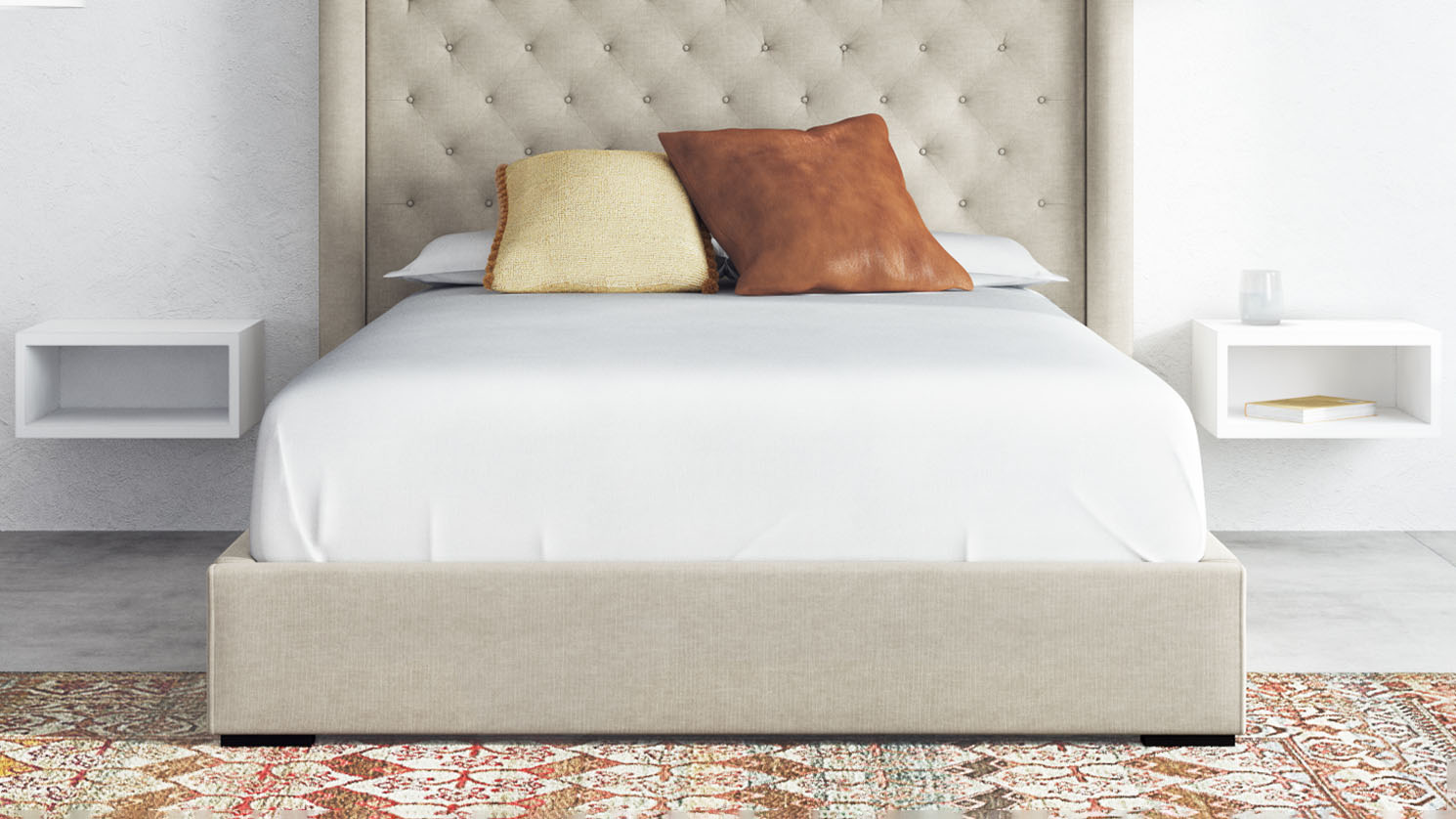
What are the advantages of a platform bed?
Wondering if a platform bed is the right choice for your sleep setup? Below are five reasons why you'll want to consider bringing one home...
1. It's compatible with all mattress types (just about)
You can pair a platform bed with any modern mattress in a box. Most mattresses today are sturdy enough for you to sleep on directly on the floor, without a bed frame. We don't necessarily recommend this, though (here are the pros and cons of putting a mattress on the floor), and a platform bed will offer optimal stability and weight distribution while you sleep.
Get instant access to breaking news, the hottest reviews, great deals and helpful tips.
While you can pair an innerspring mattress with a platform bed, in this instance you'll want to add a box spring (a fabric-wrapped frame that sits between base and mattress, and is filled with a layer of wire coils). Adding a box spring to your setup will absorb shock and boost softness.
2. It promotes cooler, more hygienic sleep
A platform bed featuring well-spaced slats (or a solid foundation with holes) will enable air to flow freely so heat doesn't get trapped in the frame. Thus, if you're a hot sleeper, a platform bed can help curb uncomfortable night sweats. (If this is a major problem for you, you'll want to add a specialized cooling mattress.)
Another benefit of this built-in ventilation system is that it'll also prevent the build-up of mold and mildew. For added protection, use a mattress protector that wicks away moisture, safeguards against spills and can regularly be popped into the washing machine for easy cleaning.
3. It offers great support for heavy people
A platform bed is capable of supporting as much as 1,500lb. The exact weight limit will vary by individual build, so read the specs sheet carefully. If you're of a heavy build, go for a platform bed with a solid base versus slats, as that'll provide firmer support. Of course, you'll also need to make sure your mattress is up to scratch, too (you'll find our recommendations in our guide to the best mattresses for heavy people).
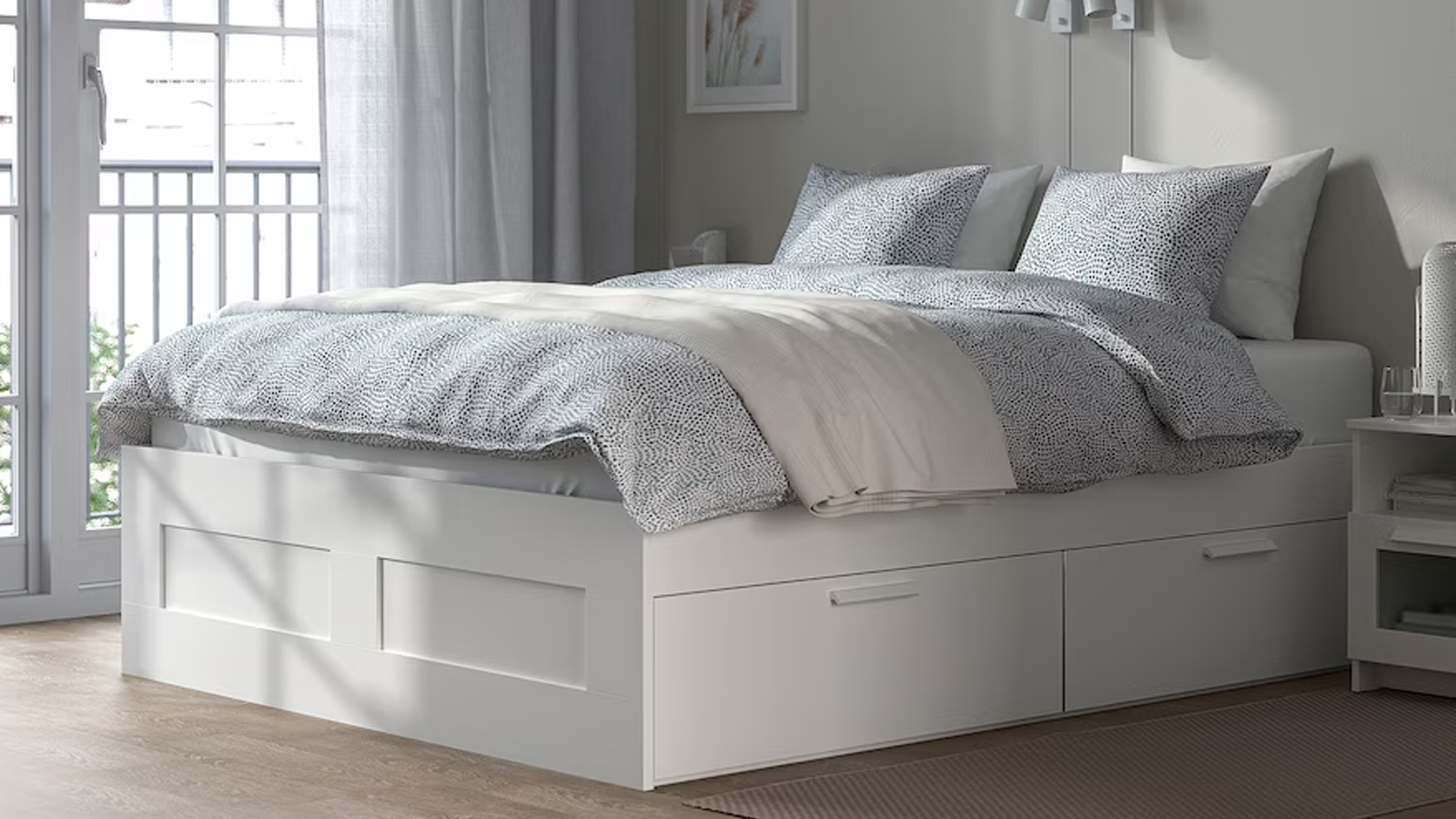
4. You can choose from a wide range of designs
Platform beds come in an array of styles, so you'll be able to find something that suits your space and aesthetic. For a pared-back aesthetic, you could choose a minimalist metal or wooden frame (like the Emma Platform Bed) or simple upholstered design (see our Nectar Platform Bed Frame review).
There are also plenty of designs that make more of a statement, if you want to use your bed as a focal point of your room's decor. In the US, Saatva makes a range of platform bed frames with interesting headboards, or in the UK we're big fans of Simba's bases (see our Simba Sirius bed base review). (The inclusion of the headboard and/or footboard can make a platform bed look like a 'standard' bed, but the difference lies in whether or not it has that support already built in.)
There are also platform beds that blend style with function by including storage space underneath. The IKEA BRIMNES Platform Bed Frame, for example, has four drawers and comes in multiple colors.
5. It's more economical than a traditional bed
Expect to pay as little as $100 / £80 for a basic platform bed, with more sophisticated designs fetching around $2,000 / £1,800. Therein lies the advantage of having so many design choices at your disposal. (Not needing to purchase a separate box spring will also save you money upfront.)
In the long run, platform beds are an economical choice because they're built to last and are able to support all types of modern mattresses. When you decide to replace your mattress, you should be able to keep your existing platform bed.
What are the disadvantages of a platform bed?
A platform bed has a lot to offer, but alas, it's not for everyone. Here are three reasons why it may not be the right type of bed frame for you...
1. It's too low for people with mobility issues
Platform beds are known for their space-saving low profile – most sit between 7 and 12 inches off the ground. (By comparison, a standard bed frame is 25 inches.) For individuals who struggle to easily get in or out of bed, a platform bed could exacerbate that problem.
However, there are possible workarounds. Opting for a thicker mattress will add height to a platform bed so it's easier to get up or lay down. You can also use bed risers or a mattress topper to tack on a few extra inches.
2. Some sleepers will find it too firm
A platform bed offers extraordinary support, but it trends toward firm. If you're petite and/or like to rest on your side, sleeping on a platform bed could feel like lying on a rock. It could also trigger pressure points, resulting in joint or back pain.
If you insist on a platform bed, choose one with slats over a solid surface, as you'll be able to adjust them to your comfort level. You'll also want to consider using a soft mattress or a plush memory foam mattress topper to temper the platform's innate firmness.
3. It's inconvenient for people who move often
Platform beds may be sleeker and more streamlined than traditional box springs – but most of them are also quite heavy, weighing as much as 200lb. If you move house frequently or like to rearrange your space on a whim, having a platform bed will make it a more cumbersome task.
Platform Bed FAQs
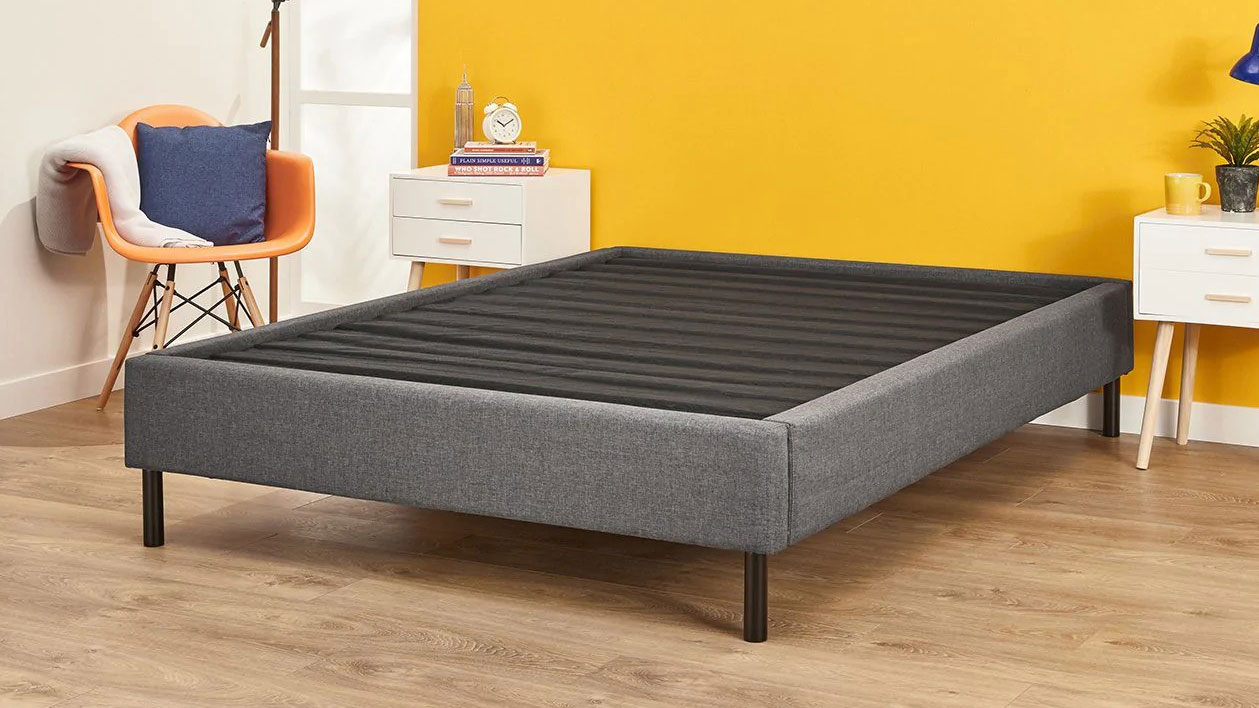
Can you put a regular mattress on a platform bed?
You can place any type of mattress on a platform bed, including a regular innerspring mattress. Although a box spring isn't required, it'll be best to use one on a platform bed with an innerspring mattress for better shock absorption and contouring. Also, some regular mattresses may require a box spring, per the terms of their warranty.
Do platform beds need a box spring?
Platform beds have support built in, so a box spring isn't necessary. However, you can add a box spring if you're sleeping on a traditional innerspring mattress, or if you want to add height to your bed.
Just beware that box springs aren't a good fit for memory foam mattresses or latex-based organic mattresses, as the coils can poke through and rupture the material. Also, using a box spring with those mattress types could void their warranty.
Do you need a foundation for a platform bed?
A platform bed has slats or a solid surface built in for support, so adding a separate foundation is redundant in most cases. One exception is if the slats on your platform bed are spaced too far apart – adding a bunkie board or another solid surface will instantly add support.
How thick should a mattress be for a platform bed?
Most platform beds sit low to the ground, so aim for a thicker mattress, around 12 to 14 inches. The exact height you'll need will depend on how tall and mobile you are. A way to find your perfect height is to sit on the edge of the bed. Make sure your knees align with your hips and your feet are flat on the floor.
Whether you go with a platform bed or another type of bed frame, make sure your mattress is up to the task. If it's time for a refresh, browse today's best mattress deals below, or bookmark our mattress sales hub so you don't miss out on great savings.

Based in Philadelphia, writer and editor Alison Barretta has been sharing buying advice and retail news for over 15 years. Since 2020 she's been helping Tom's Guide expand its robust library of sleep content by researching the latest trends, speaking with renowned experts, and going behind the scenes at Saatva, Casper, Sleep Number, Tempur-Pedic, and 3Z Brands. Alison has reviewed everything from budget mattresses to immersive luxury smart beds that automatically adjust to your every move. When she isn't reviewing mattresses or searching for great deals to save you money, Alison can be found practicing yoga and martial arts, experimenting with recipes, getting too invested in the Philadelphia Flyers, and snoozing with her cat / assistant mattress tester Alex.
 Club Benefits
Club Benefits










